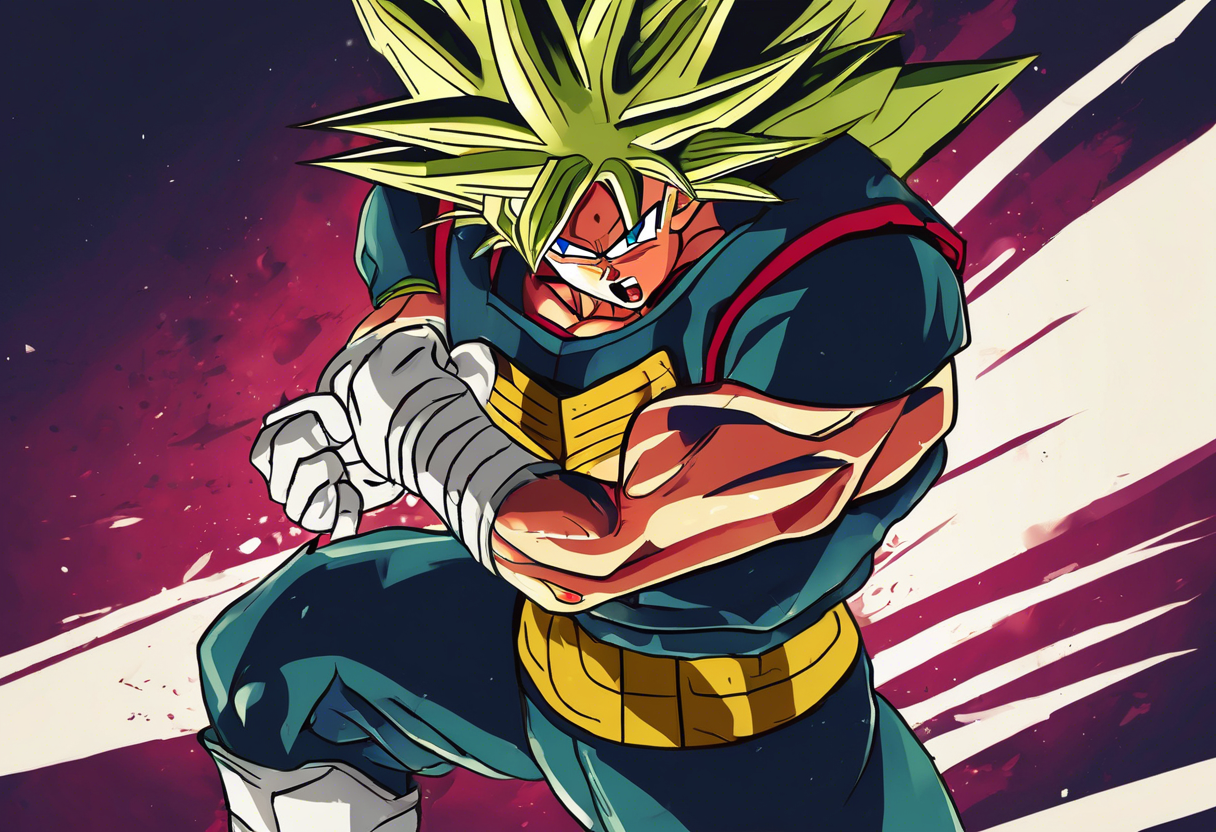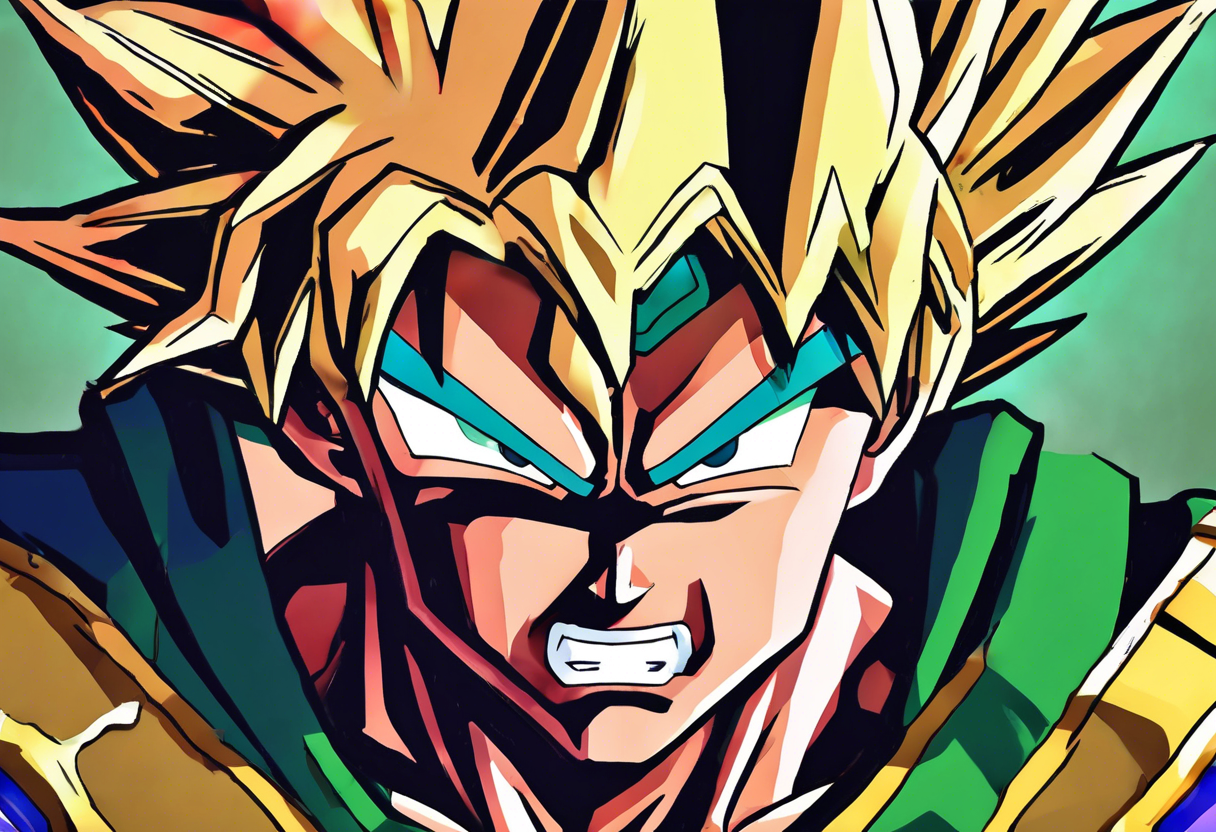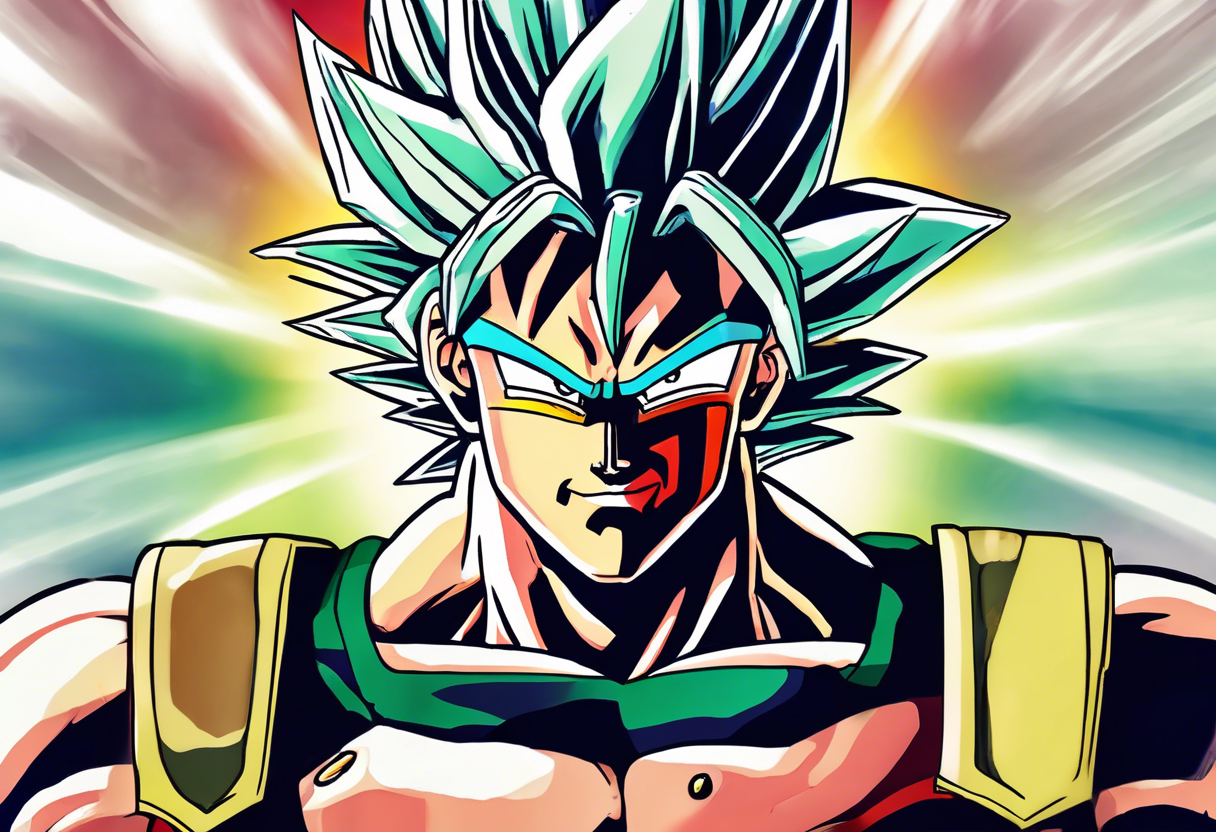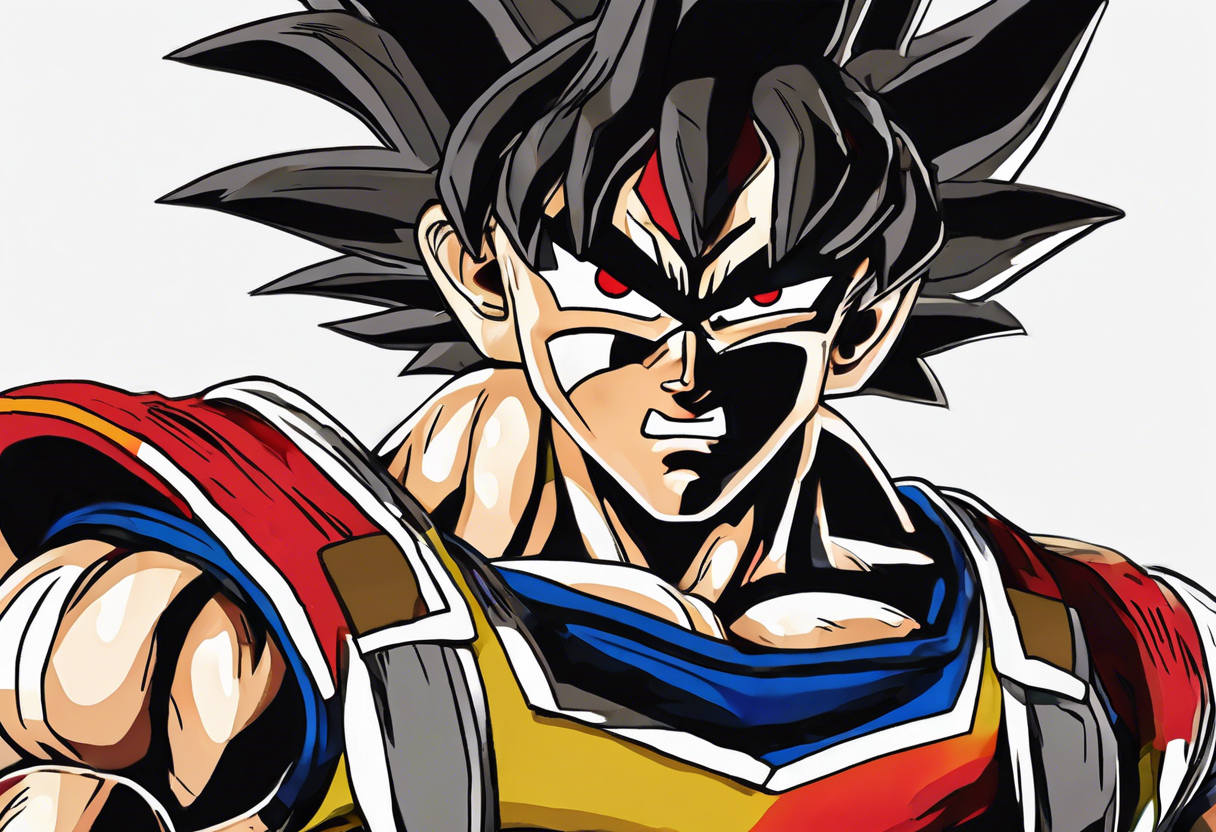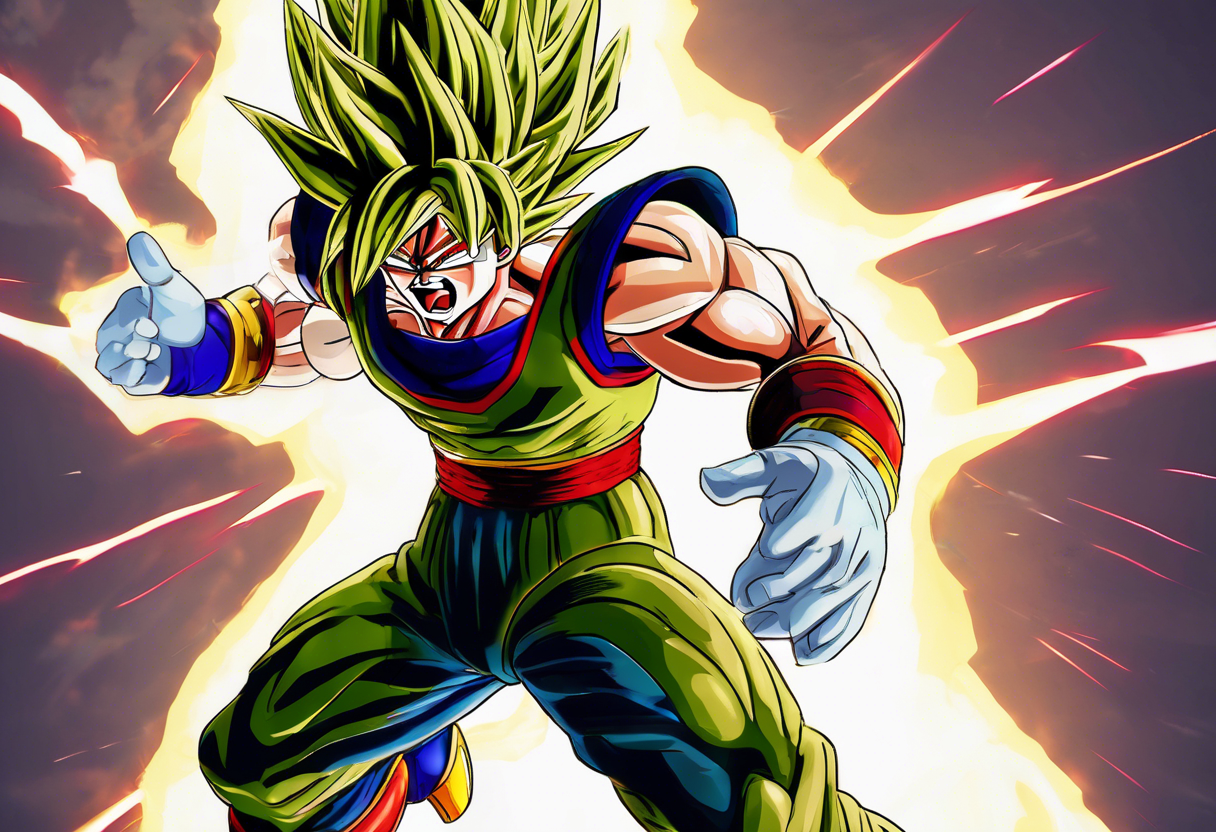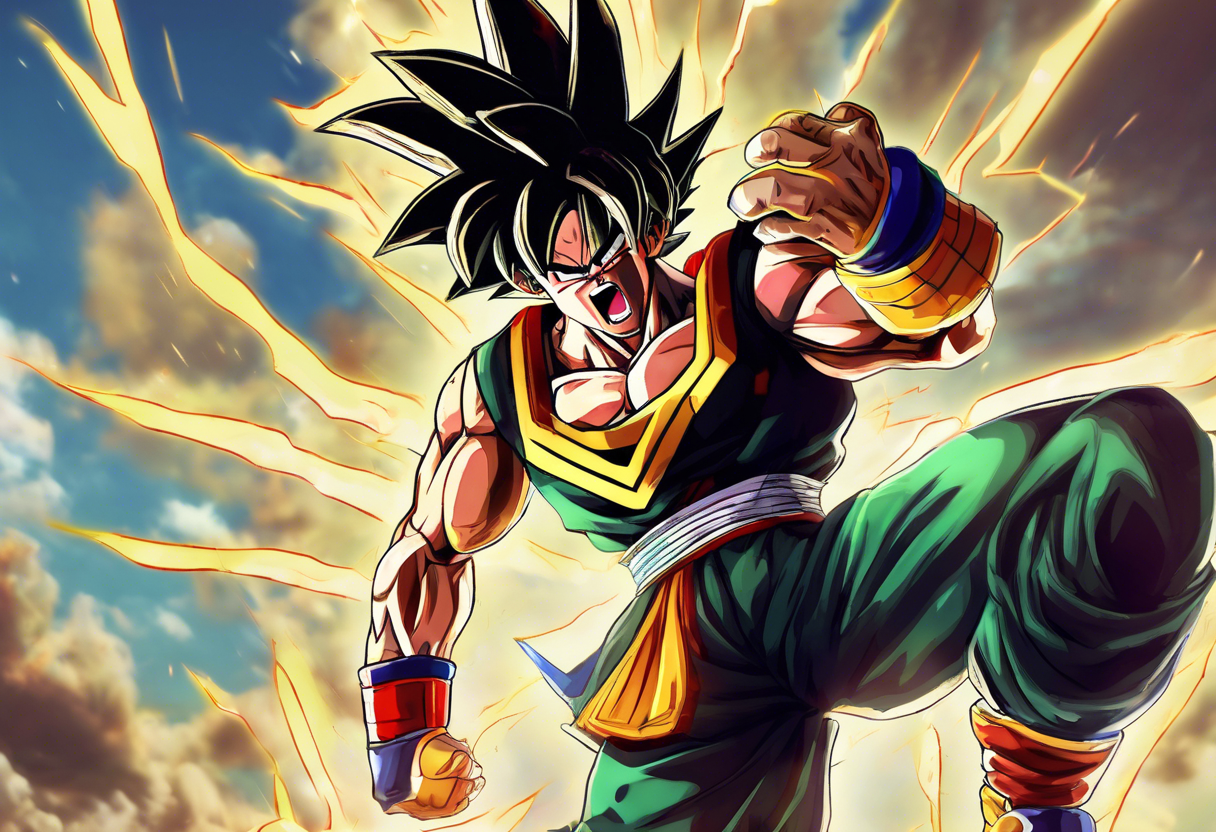Contents
Bardock: The Tragic Hero of the Dragon Ball Universe
Introduction
Bardock, a pivotal character in the Dragon Ball franchise, was created by Toei Animation and designed based on the visual concept of Goku by Akira Toriyama. He first appeared in the television special Dragon Ball Z: Bardock – The Father of Goku in 1990, but his integration into the canon of the series was solidified later through various media, including manga and subsequent adaptations[1][4].
Bardock is a Saiyan mercenary and the biological father of Goku, whose real name is Kakarot. His story serves as a crucial backdrop to the events of the Dragon Ball Z series, particularly in explaining the Saiyan genocide perpetrated by Frieza and the origins of Goku’s journey. Bardock’s character has resonated deeply with fans and critics alike, making him a beloved and tragic figure in the Dragon Ball universe.
Role in the Story
Bardock’s storyline is intertwined with the broader narrative of the Saiyan race and their eventual downfall. Initially introduced in the television special Dragon Ball Z: Bardock – The Father of Goku, Bardock is depicted as a low-class Saiyan warrior who possesses a unique ability to see into the future through his precognitive powers[1][4].
His journey begins with his involvement in various battles as a mercenary, but a pivotal moment occurs when he has a vision of the destruction of Planet Vegeta by Frieza. This vision, combined with his growing sense of unease and rebellion against Frieza’s tyranny, sets him on a path of resistance. Despite his efforts, Bardock is ultimately unable to prevent the destruction of his home planet and meets a tragic end at the hands of Frieza.
Bardock’s relationships with other characters are significant, particularly his wife Gine and his son Kakarot (Goku). His decision to send Goku to Earth as a child, in an attempt to save him from the impending doom, is a defining moment in the series and sets the stage for Goku’s adventures on Earth[1][2].
In later adaptations, such as the manga Dragon Ball: Episode of Bardock and its animated version, Bardock’s story is expanded to include his battle against Chilled, Frieza’s ancestor, which leads to his transformation into the first Super Saiyan in the Dragon Ball universe[3].
Character Analysis
Bardock’s personality is marked by his bravery, loyalty, and a deep sense of justice. Unlike many of his Saiyan peers, he exhibits a more empathetic and compassionate side, particularly evident in his love for his family and his willingness to defy Frieza to protect them.
His motivations are driven by a desire to protect his people and his family from the tyranny of Frieza. This motivation is intensified by his precognitive visions, which give him a unique perspective on the impending doom of the Saiyan race.
Bardock’s strengths include his combat prowess and his ability to see into the future, which makes him a formidable opponent. However, his flaws, such as his inability to change the course of events despite his foresight, add a layer of tragedy to his character.
The development of Bardock’s character is significant as it humanizes the Saiyan race, which is often portrayed as brutal and warlike. His story adds depth to the Dragon Ball universe, highlighting the complexities and emotions of characters often seen as one-dimensional.
Themes and Symbolism
Bardock embodies several key themes within the Dragon Ball series. One of the most prominent is the theme of sacrifice and the consequences of rebellion against oppressive power. His actions and ultimate sacrifice serve as a testament to the enduring spirit of resistance and the importance of protecting one’s loved ones.
The character also symbolizes the tragic fate of the Saiyan race, highlighting the destruction and genocide that they suffered at the hands of Frieza. This serves as a backdrop to explore themes of survival, hope, and the resilience of individuals in the face of overwhelming adversity.
Furthermore, Bardock’s transformation into a Super Saiyan symbolizes the power of emotional transformation and the potential for individuals to transcend their limits when driven by strong emotions such as anger and compassion[3].
Cultural Impact
Bardock has had a significant cultural impact since his introduction. His character has been well-received by fans and critics, who appreciate his tragic yet heroic storyline. He has appeared in various adaptations, including video games, manga, and animated specials, further solidifying his place in the Dragon Ball lore.
The character’s popularity has led to the creation of additional content, such as the manga Dragon Ball: Episode of Bardock and its animated adaptation, which explore his backstory and his transformation into a Super Saiyan[1][3].
Bardock’s influence on popular culture is evident in his portrayal as a complex and relatable character, which has inspired other works and character archetypes. His story has been praised for adding depth and emotional resonance to the Dragon Ball series.
Critical Reception
Critics and audiences have praised Bardock for his compelling and tragic storyline. Akira Toriyama himself was moved by the character’s story, leading to his decision to incorporate Bardock into the series’ canon continuity through the Jaco the Galactic Patrolman manga bonus chapter "Dragon Ball −(Minus): The Departure of the Fated Child"[1][2].
Some critics have noted the inconsistencies in Bardock’s power level as a Super Saiyan compared to other characters in the series, but overall, his character has been well-received for adding a new layer of complexity to the Dragon Ball universe[3].
Legacy
Bardock’s enduring appeal lies in his tragic yet heroic story, which resonates deeply with audiences. His character has inspired numerous adaptations and has become a staple in the Dragon Ball franchise.
In contemporary discussions, Bardock remains a relevant figure, symbolizing the themes of sacrifice, rebellion, and the power of emotional transformation. His legacy continues to influence the Dragon Ball series, with new content and adaptations still exploring his character and backstory.
Bardock’s impact on the franchise is a testament to the power of well-crafted storytelling and the ability of characters to transcend their original roles and become cultural icons.

